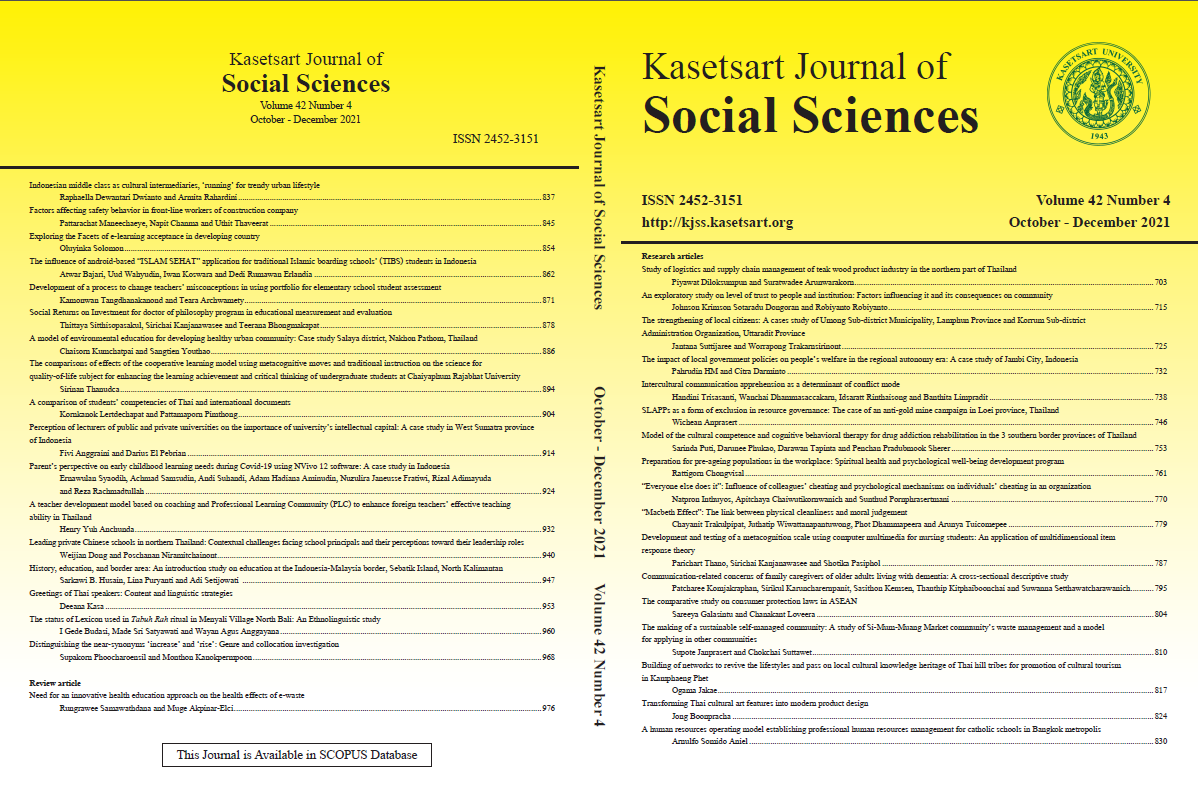Model of the cultural competence and cognitive behavioral therapy for drug addiction rehabilitation in the 3 southern border provinces of Thailand
Keywords:
CBT, cultural competence, drug addiction rehabilitation, EVM, the three southern border provinces of ThailandAbstract
This study aimed to investigate therapists’ and clients’ experience of Cognitive- Behavioral Therapy and to propose a model of Cultural competence Cognitive- Behavioral Therapy for drug addiction rehabilitation in the southern border provinces of Thailand. A qualitative design was used to create the questionnaire, focus group, and in-depth interview based on Beck’s cognitive conceptualization. The cultural competency proposed was based on the Ecological Validity Model [EVM]. It was formulated through clients and therapists experienced in CBT. The study found that clients were satisfied and willing to participate in CBT conducted by a culturally sensitive therapist, particularly a therapist whom they trusted, practiced the same religion and used the same language. Furthermore, clients reported that no activity involving the exploration of more profound life problems influenced sustained drug use. Therapists reported their experience of CBT to the cultural dimension: the CBT was responsive to clients’ cultural backgrounds, predominantly in the areas of language, context, contents, concepts, and personal dimensions. Moreover, therapists who conceptualize drug use behaviors have discovered that their judging behaviors have influenced their attitudes and therapeutic relationship style. The result obtained from the second objective showed that culture and religion create trust in the therapeutic relationship, and redesigning CBT activities and skills should be considered. The redesigning should be carried out with the dimensions of EVM together with the therapeutic relationship, case conceptualization, content, rehabilitation goals, understanding the concept of drug use, method of thought stopping, and building the life balance should be aligned with the cultural dimension and the belief in the doctrine.
Downloads
Published
How to Cite
Issue
Section
License

This work is licensed under a Creative Commons Attribution-NonCommercial-NoDerivatives 4.0 International License.
This is an open access article under the CC BY-NC-ND license http://creativecommons.org/licenses/by-nc-nd/4.0/










